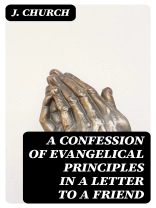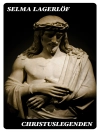In 'A Confession of Evangelical Principles in a Letter to a Friend, ’ J. Church presents a reflective and concise examination of the core tenets of evangelical faith, articulated through a personal correspondence that combines intellectual rigor with heartfelt sincerity. The book’s epistolary style enhances its intimate tone, inviting readers into the author’s contemplative process as he navigates complex theological issues and personal convictions. Set against the backdrop of contemporary evangelical discourse, Church’s work engages with historical and modern perspectives, providing a well-rounded exploration of belief that invites both affirmation and critique. J. Church, an influential figure in the evangelical community, draws upon his own experiences and theological education to craft a narrative that resonates with believers and seekers alike. His background in pastoral ministry and theological scholarship informs his insights, allowing him to address common misconceptions while affirming the transformative power of evangelical principles. Church’s personal journey and professional dedication to fostering dialogue within the faith community are palpable throughout the text, making it both accessible and thought-provoking. This book is highly recommended for anyone seeking a deeper understanding of evangelical thought in a rapidly changing cultural landscape. Whether you are a lifelong believer, a skeptic, or someone simply curious about the intricacies of faith, Church’s nuanced exploration will provoke reflection and discussion, making it a must-read for today’s spiritual seekers.
O autorze
J. Church, an author from a period where letters and epistles were common forms of discourse, contributed to theological and evangelical literature through his contemplative works. Notably, Church penned 'A Confession of Evangelical Principles in a letter to a friend, ’ a title reflective of an era when intimate and thoughtful exchanges were often shared through written correspondence. While the historical records about J. Church are not extensive, his work suggests an engagement with evangelical theology—a movement that emphasizes the authority of the Bible, the centrality of the teachings of Jesus, and the importance of personal faith and conversion. Church’s missive indicates a scholarly approach, meticulously outlining his religious convictions and inviting his friend, and by extension his readers, to reflect upon their own spiritual beliefs. This form of religious literature exemplifies the personal yet polemical style of the period. Church’s literary output must be considered in the context of the broader evangelical movement, contributing to the tapestry of religious discourse through his distinct theological reflections. Though 'A Confession of Evangelical Principles’ remains his most recognizable work, it highlights his stature as a thinker and writer engaged in the key theological conversations of his time.












